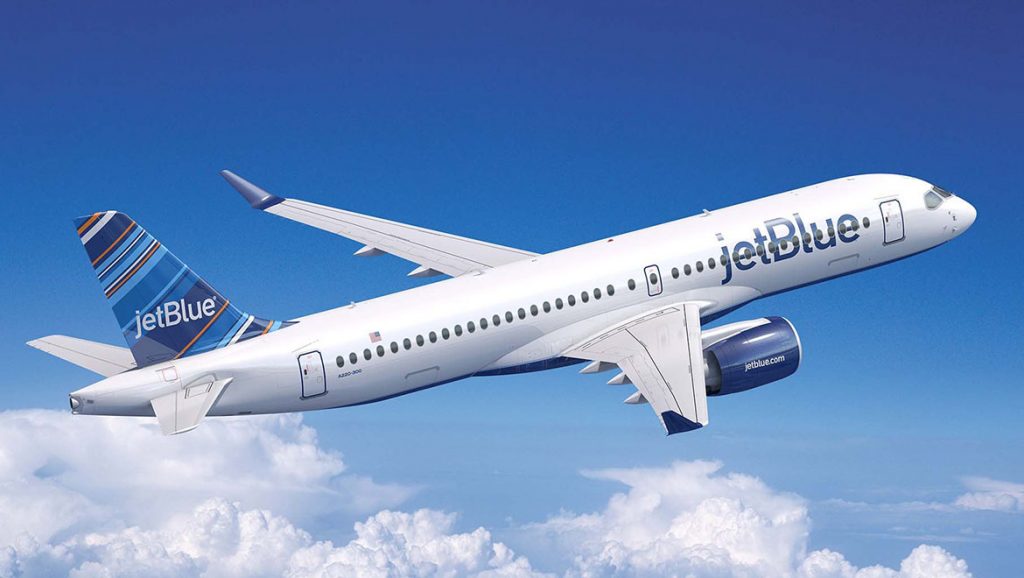
JetBlue Airlines is urging Spirit shareholders to vote against its merger with Frontier to become the fifth largest US carrier, persisting its deal remains superior.
In an update of the heated fight to buy out Spirit Airlines, JetBlue has accused the Florida-based carrier of not providing “necessary diligence” amid the negotiations, leading the company to reduce its offer to US$30 per share in cash, down from the original US$33.
The latest comes in a letter addressed to Spirit shareholders sent from the CEO of JetBlue, Robin Hayes, released to the public on 16 May.
In February, ultra-low-cost airlines Frontier and Spirit announced they were joining forces to compete against the “big four”, including American Airlines, United Airlines, Southwest Airlines and Delta Air Lines.
But in April, JetBlue announced it was competing against Frontier with a “superior” deal, and despite the merger between Spirit and Frontier making more sense to industry analysts, such as their similar low-cost ambitions and regional routes, JetBlue has the potential to strengthen Spirit’s foothold in Florida.
Spirit officially rejected JetBlue’s offer in early May over fears regulators would not approve of the deal due to the controversial Northeast Alliance (NEA) with American Airlines, and the lack of similarities between the companies.
JetBlue, however, disputed those fears and said that the NEA litigation, which is slated for September, would “not be an obstacle” of the acquisition of Spirit, and would not “impact” shareholders in any way, even if the company lost the trial.
The partnership, which allows the airlines to sell each other’s flights and provide benefits to loyal members, began in 2020. But the Department of Justice in September last year sued the NEA because it eliminates competition in New York and Boston by diminishing JetBlue’s cheaper prices against American.
JetBlue said it is confident the company will win the case, but said it is “irrelevant” to this latest offer.
In JetBlue’s latest letter to shareholders, the company also insisted its share offer still represents a 60 per cent premium compared to Frontier’s, and if Spirit does “engage constructively”, the New York-based carrier will revert the offer to $33 per share in cash again.
The company believes Spirit is acting in its own self-interests and its relationships with Frontier’s shareholders.
“Based on the clear superiority of our offer, we expected the Spirit board to engage constructively. Given its unwillingness to share necessary information or negotiate in good faith, we adjusted our price accordingly, but will work towards a consensual transaction at $33 per share, subject to receiving the information to support it,” Hayes said.
“JetBlue offers more value – a significant premium in cash – more certainty, and more benefits for all stakeholders. Frontier offers less value, more risk, no divestiture commitments, and no reverse break-up fee, despite more overlap on non-stop routes and their own regulatory challenges.”
Spirit also originally rejected the offer over fears it would not win regulatory approval, but JetBlue believes its merger with Frontier would pose similar risks.
Further, JetBlue also said it would provide a US$200 million reverse break-up fee – or US$1.80 per Spirit share – that would be payable to Spirit in the event that the transaction is not approved for antitrust reasons.
In the recent letter, JetBlue also persisted that if Spirit rejected the Frontier offer, its shares would trade between US$23.1-US$25.5, compared to trading at approximately US$17 if it went through with the original merger.
Spirit Airlines confirmed it is reviewing JetBlue’s offer to “determine the course of action” in “the best interests of Spirit and its stockholders”.
It urged shareholders to take no action and will inform them of its position within 10 business days, according to a statement on Monday.




